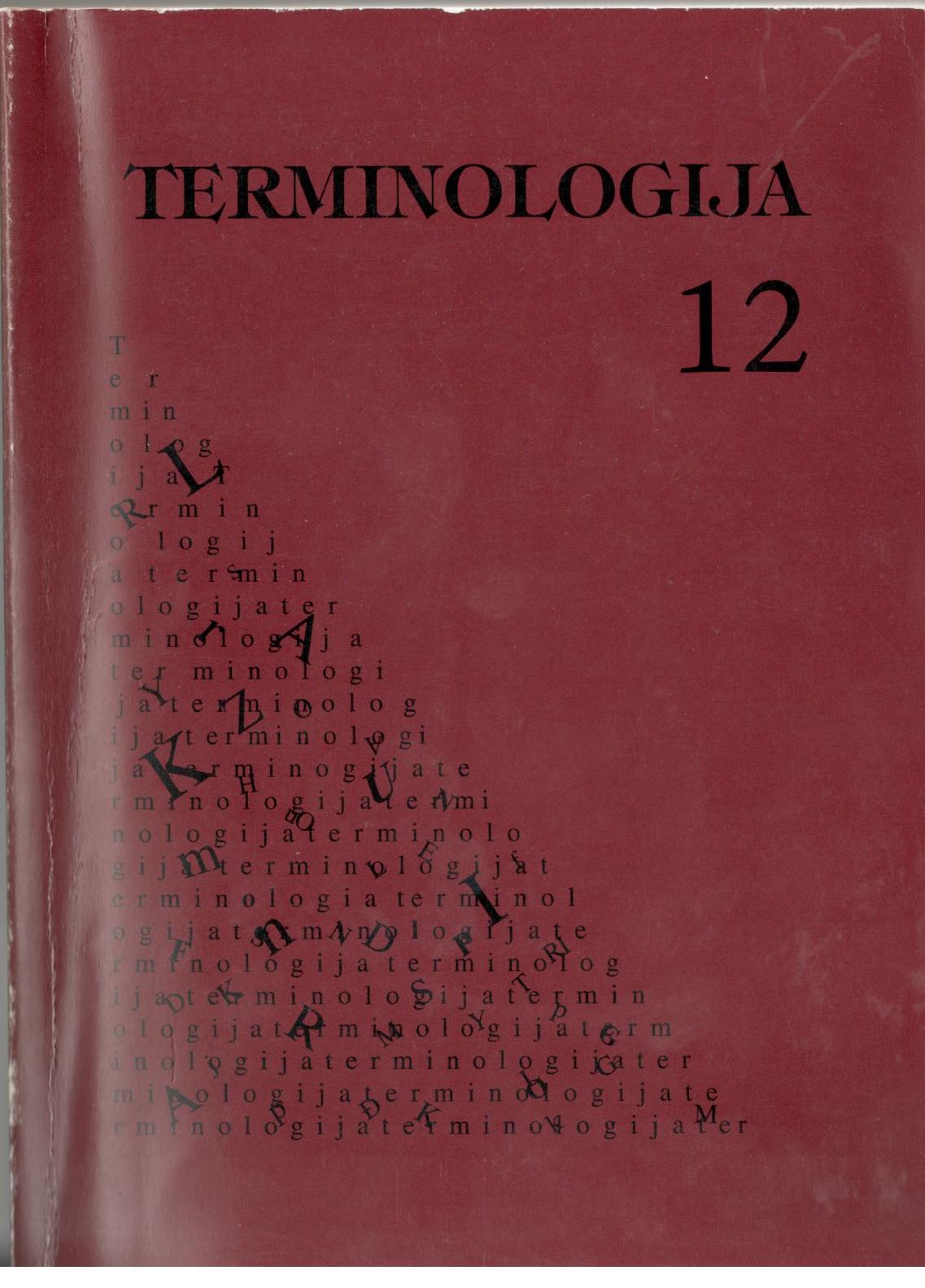Asmenis įvardijantys teisės terminai 1918–1940 m. Lietuvos kodeksuose
Law terms naming persons in Lithuanian legal codes of 1918-1940
Author(s): Alvydas UmbrasasSubject(s): Language studies, Language and Literature Studies, Law, Constitution, Jurisprudence, Lexis, Historical Linguistics, Descriptive linguistics, Baltic Languages, Philology
Published by: Lietuvių Kalbos Institutas
Keywords: history of terminology;
Summary/Abstract: Sources for the research in this article are unofficial translations of Russian legal codes, which were valid in Lithuania between 1918 and 1940, into Lithuanian. The article analyses terms of law for naming persons. Part of these terms could be attributed to the jurisprudence, other part – to the legal practice. They are names of persons connected by the legal relations and persons performing legal functions. There were about 800 such terms found in the earlier mentioned codes. About half of them are one-word terms, a half of them – complex terms (mainly two-word terms). Terms are discussed according to their origin and word-formation.A characteristic feature of law terms of that period naming persons is their Lithuanian origin. Names of persons, which are separable in respect of word-formation, are rare in those codes, most of them are derivatives. Some of them are coined specially for the needs of law terminology, most of them are terminologized. It is quite difficult to mark strictly terminologized formations from new formations. If a derivative, which is systematically possible, did not get into the earlier lexicography, it is not possible to conclude that such word did not exist. Most of law terms naming persons are derivatives with suffixes -to-jas, -a and -ėjas, -a, which on the whole are very common and productive. It is possible that exactly because of the commonness some terms made with the suffix -tojas, -a were replaced with derivatives with the suffix -ovas, -ė. More clearly new words were made with the suffix -ininkas, -ė.The article singles out a distinctive type of law terms naming persons – substantivized participles, mostly of the passive voice of the present tense. This is quite convenient way of a short expression. Some of the terms of this type are usual until nowadays.Borrowings make quite a small part of law terms naming persons in these codes. Almost all borrowings are international words. An absolute majority of them are of the Latin origin. The Lithuanization of a very few international words differs from the present one, variations are rare. Hybrid terms are close to borrowings, though such way of naming persons in these code was not popular at all.
Journal: Terminologija
- Issue Year: 2005
- Issue No: 12
- Page Range: 107-136
- Page Count: 30
- Language: Lithuanian

